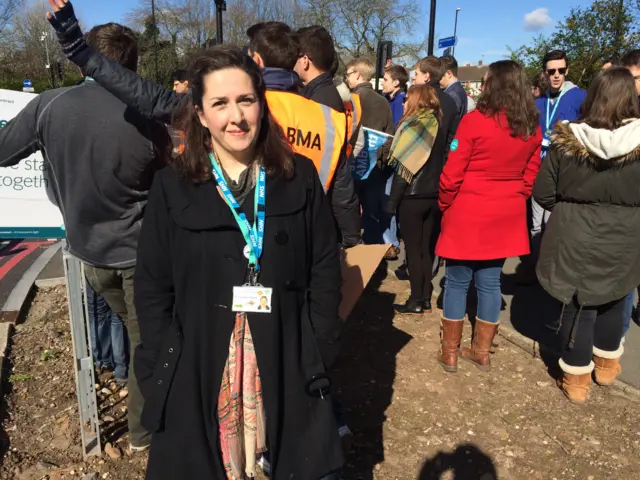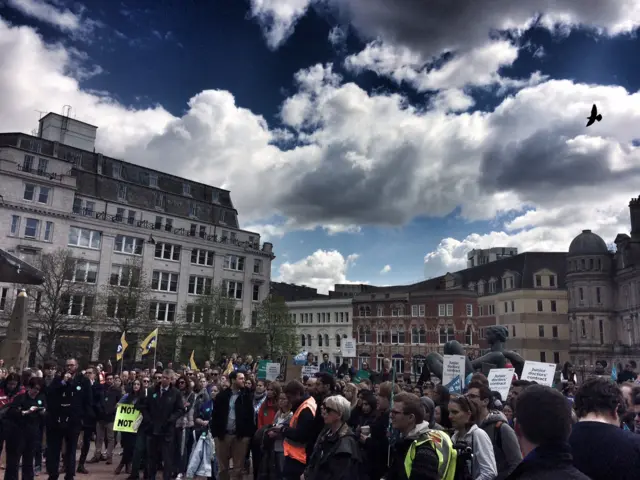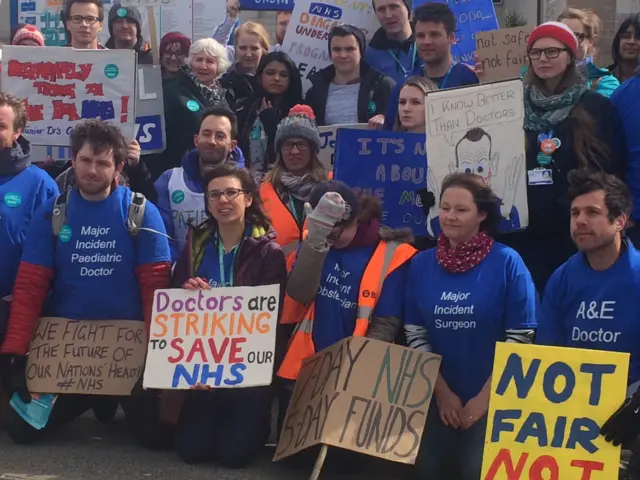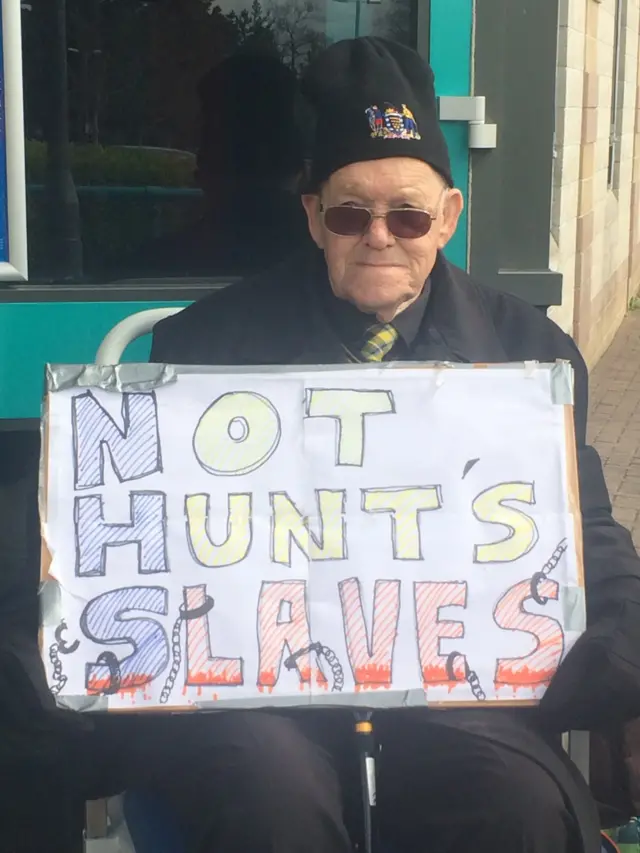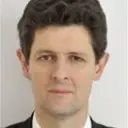In pictures: Doctors on the picket linepublished at 16:55 BST 26 April 2016
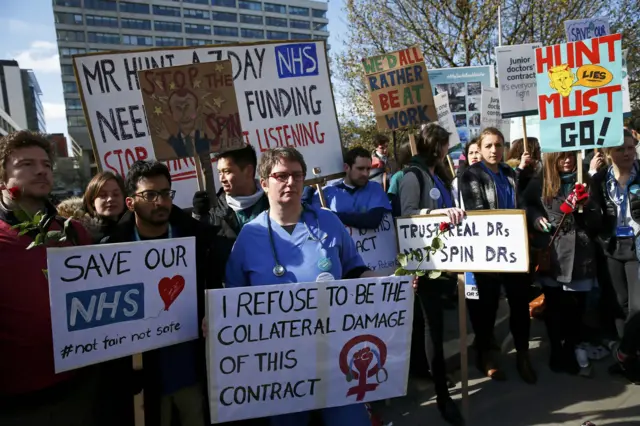 Image source, Reuters
Image source, ReutersPlacards outside St Thomas' Hospital called for Health Secretary Jeremy Hunt to resign
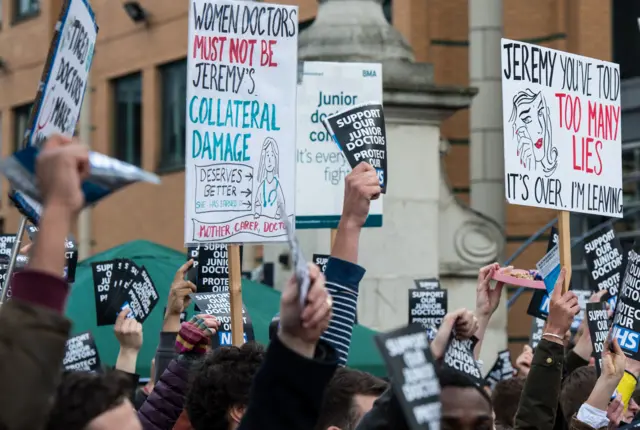 Image source, Reuters
Image source, ReutersThere were signs referring to Mr Hunt outside King's College Hospital in London too
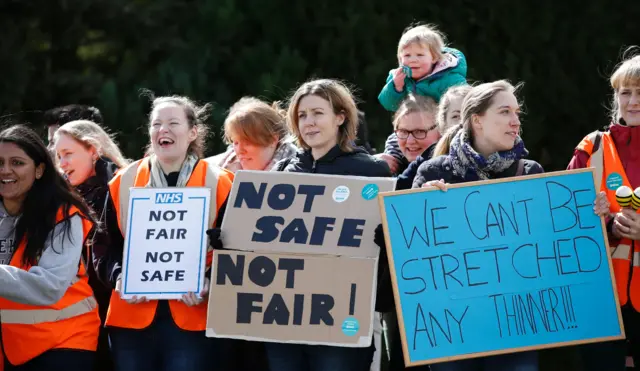 Image source, AFP/Getty
Image source, AFP/GettyDoctors outside Basingstoke and North Hampshire Hospital said they were being stretched too far

